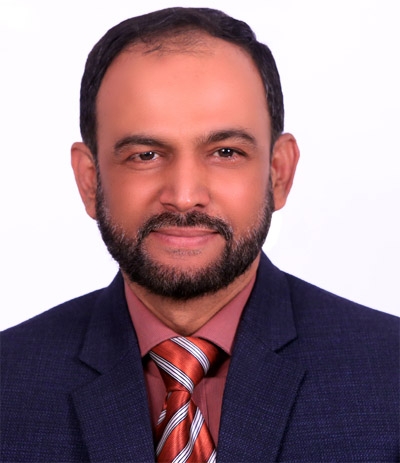
Prof Dr Md Mahmudul Hassan :
The new curriculum has been declared to be implemented from the academic year 2023. Though theoretically this new curriculum is good, but question arises, is it practically implementable? According to sources, the newly approved curriculum outline has undergone major changes in 8 areas. They are- 1. Defining 10 subjects for everyone up to class-X (there will be no conventional humanities, science and business studies department); 2. Public examinations after the end of class-10, emphasizing proficiency instead of examination and memorization; 3. Public examinations at the end of Class-XI on the basis of Class-XI syllabus and at the end of Class-XII on the basis of Class-XII syllabus to reduce examination stress; 4. Introducing continuous learning assessment to ensure proficiency and reduce memorization; 5. It is compulsory for every student in the classes of IX and X to acquire skills in an occupation in agriculture, service or industry and to acquire professional skills to work in any profession after class-X; 6. Introduction of two days weekly leave at secondary level; 7. Experiential learning-teaching activities are practiced outside of school (family and social level) and 8. Logical combination of specialized subjects of madrasa and technical branch as well as level selected subjects to achieve common values and vision of all students.
There are 9 new subjects that have been added in this curriculum. They are- 1. Qualification and skills based curriculum; 2. Emphasis on student activity, experience, and proficiency rather than memorization or test scores; 3. Preparation for the 4th Industrial Revolution, including academics as well as life and livelihood issues; 4. Emphasis on the spirit of liberation war and regular practice of one’s own art and culture; 5. Regular practice of values and ethics in daily life; 6. The practice of good living in the family, school and society; 7. Use digital technology as well as develop as an innovator; 8. Emphasis on acquiring transformative skills to adapt to change considering global challenges, risks and possibilities and 9. Ensuring overall development with emphasis on student’s emotional intelligence and mental health.
The subjects mentioned in the new curriculum are undoubtedly positive and, to a large extent, beneficial. The eleven issues that have been highlighted in the outline for the implementation of the new curriculum are as follows: 1. Preparation of time bound master plan phase to phase and implementation with all institutions; 2. Ensuring proper training to teachers prior to curriculum implementation; 3. Establishment of physical and technological infrastructure including science, ICT and social labs in educational institutions; 4. Development of necessary infrastructure (labs and equipment) and recruitment of teachers for acquiring occupational skills related to services, agriculture and industry in educational institutions; 5. Establish institutional liaison with Technical Schools and Colleges (TSCs); 6. Institutional relations of services, agriculture, industry, business, local government and social institutions with educational institutions; 7. Increase the professionalism of teachers, education administrators and managers; 8. Establishing an effective monitoring and mentoring system through digitalisation; 9. Development of learning assessment frameworks and systems through digitalization; 10. Institutional reform of education management and financing and 11. Taking appropriate action with the highest priority on teacher empowerment.
The new curriculum has been prepared emphasizing the four basic principles of the state in the constitution of independent Bangladesh. The aim of the new curriculum is, 1. To develop effective and flexible curricula to enrich the underlying potential of all students; 2. To build educational institutions as social centers for student development and excellence; 3. Creating and recognizing multidisciplinary learning opportunities outside the institutional environment; And 4. Recruitment of responsible, self-motivated, skilled and professional manpower at all levels of the education system.
In the new curriculum, all students up to class-10 have to study the same subject. There will be no division for science, commerce or arts. This may reduce the number of science students every year. In a competitive world, especially in this era of the 4th Industrial Revolution, more emphasis needs to be placed on science to make it suitable for students, but the new curriculum has raised concerns in this regard among experts.
In the new curriculum, emphasis has been placed on continuous or structural assessment from pre-primary level to higher secondary level. This is positive, but are teachers able to accurately and effectively assess students throughout the year? Do educational institutions have the organizational capacity to evaluate them properly? How ready the teachers are for taking such an assessment? Will teachers be able to evaluate students properly in addition to regular teaching pressures?
The decision of having no annual exams up to the class-III is commendable, it would have been better if it was up to the Class-V. But they must have some kind of evaluation process based on which they can be promoted to the next class and create a competitive mentality among the students! Similarly, from 2023, there will be no PEC and JSC / JDC examinations. As such, the students will take the first major exam in SSC. There will only be tests on Class-X contents. It is questionable to what extent the examination on Class-X will be helpful to the students in the formation of knowledge based talent except the Class-IX textbook.
Another surprise was the decision to take two public examinations in class-XI and class-XII. It means students will have to take three public examinations for three consecutive years in Classes-X, XIand XII. This will increase the rate of students studying in private or coaching. As a result, interest in knowledge among students will decrease.
(Prof Dr Md Mahmudul Hassan is Principal, Daffodil International School).

